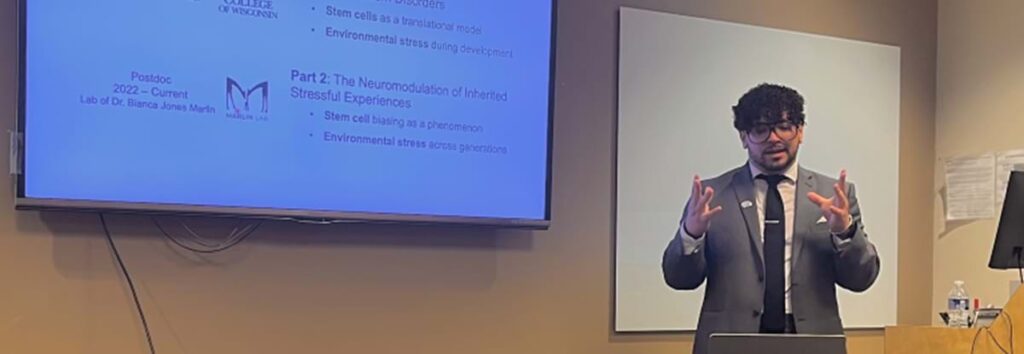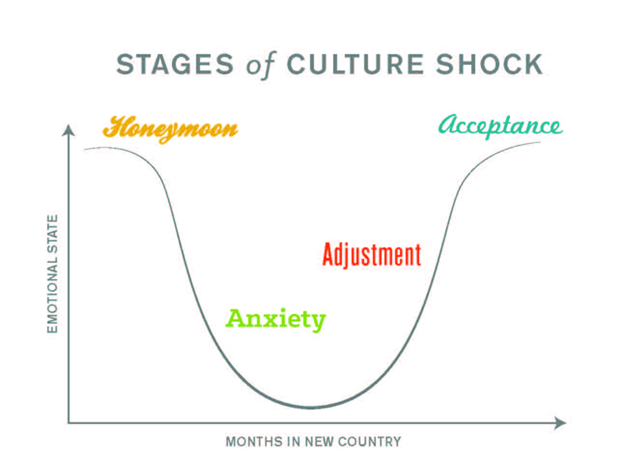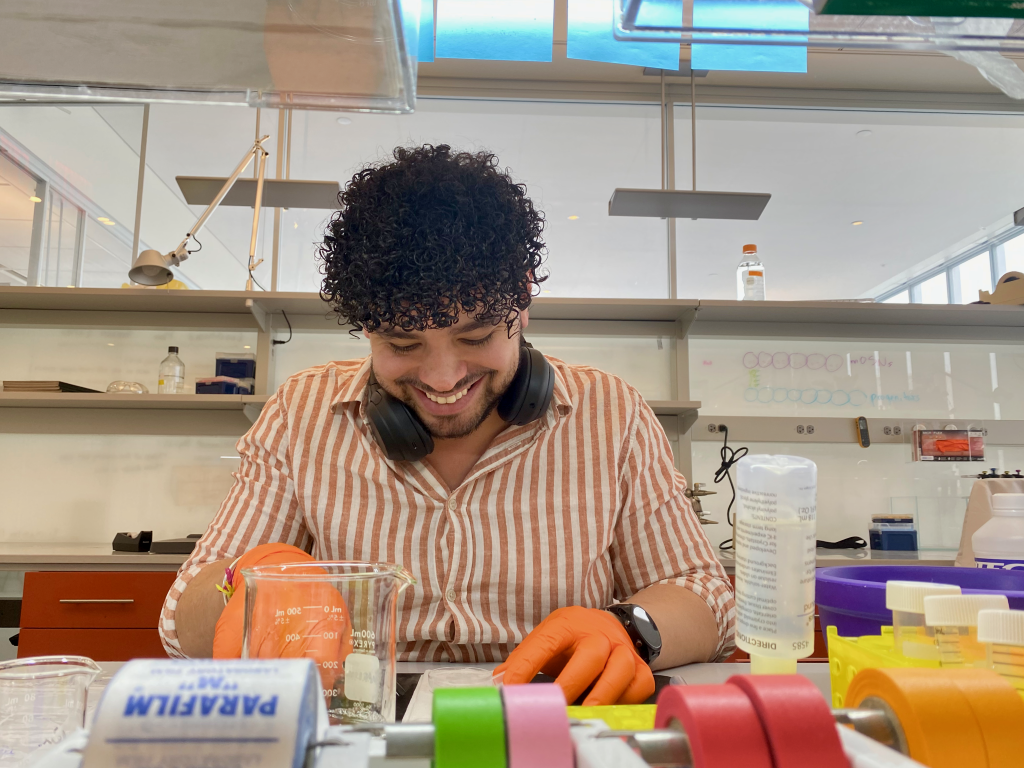Supporting International Postdocs: “How Can We Make This Place More Like Home?”
Every international postdoc has a multitude of interests, experiences, fears and dreams. Supporting them means taking into account all of those things, as opposed to just focusing on their research project.
Published September 18, 2023
By Thiago Arzua, PhD
2023 Leon Levy Scholar in Neuroscience

Even after doing this countless times before, I was still nervous waiting outside my advisor’s office to talk about some experiments that did not work.
“What if they ask for more data than I have? What if I picked the wrong project?” These thoughts quickly devolve into something darker like: “Do I deserve to be here? Have I done enough?” My own internal imposter syndrome aside, my advisor’s response was comforting, “Cool, now we know that doesn’t work.” By contrast, his feedback made me realize that support is something we need.
International postdocs leave behind all of their support systems – family, friends, culture – in their home country and are often expected to adjust and start working right away. In reality, the support international scientists need is not unusual. Instead, it is something we do not realize we missed or needed until it is gone.
At the most fundamental level, supporting international postdocs looks like increasing support for all postdocs – temporary visa holders still represent a majority of postdocs in the U.S. It can be a bit of a conundrum. Being involved with science policy and advocacy for a while, a conversation with a political consultant once made that clear to me – “No matter how rational it is to fund international scientists, in some politicians’ minds, you are constituents – you are not voters”.
In that sense, support comes from peers, advisors, and the universities themselves fiercely advocating for their international researchers at every level. Internally and institutionally, this can also look like providing reliable advice and resources for international postdocs who need to navigate a new world of healthcare, taxes, visas, and more that people born and raised here in the United States take for granted.
At the core of this international postdoctoral account of “Maslow’s Hierarchy of Needs” are the basic things every postdoc needs, e.g. fair salaries, good working conditions, etc. At the top of this hierarchy, there is something less tangential – something that took me a while to realize I needed.
The U-Shaped Curve of Culture Shock
There is a famous U-shaped curve used to describe the emotional states of culture shock. In it, people go from a happy honeymoon stage, then through anxiety and adjustment periods, to finally get back up to an adapted stage. I went through that whole curve at least three times since leaving Brazil; once for every career level which came with a location change.
At every stage, the excitement for science was so front and center that I would lose track of the fact that everything was culturally changing around me. During those times, the support I needed had nothing to do with scientific research, but receiving an abundance of humanity and compassion from others.

Case in point, Thanksgiving of my first year in grad school, I was, in essence, adopted by the family of another student for the week. Years later, as a postdoc in a new city, almost as a repeat, other international postdocs and I were stranded by visas or simply by the weather and decided to host a potluck Christmas. So, when the next holiday season comes up, make sure to ask the international postdocs around you if they have plans, and if not, make a point to invite them.
Do Your Part to Make International Postdocs Feel Welcome
Having spaces where international postdocs can thrive means not just helping them adjust to the U.S., but fully acknowledging and incorporating their individualities in how they work, and above all, understanding that people cannot dissociate their personality from how they do research. In my case that has sometimes looked as simple as having my peers text me when they hear some news from Brazil.
It also means having an advisor who knows I enjoy science communication and connects me to opportunities I would not find by myself. Every international postdoc contains a multitude of interests, past experiences, current fears, and future dreams. Supporting them means supporting all of those and not just a finite research project.
At the end of the day, the question “So, do you think you’ll go back home?” is always present whether in talking to people or back in my internal voice. We all have our reasons either way, but in thinking critically about how my international peers can be supported while in the U.S., I think a much better question might be “How can we make this place a little more like home?”

Thiago Arzua, PhD is a 2023 Leon Levy Scholar in Neuroscience. You can learn more about him and the Leon Levy Scholars HERE.
This piece was originally published on the National Postdoctoral Association member blog as part of 2023 National Postdoc Appreciation Week. Current Academy Student Members can receive a 20% discount on a National Postdoctoral Association postdoc individual membership by emailing customerservice@nyas.org and requesting the NPA membership discount code
